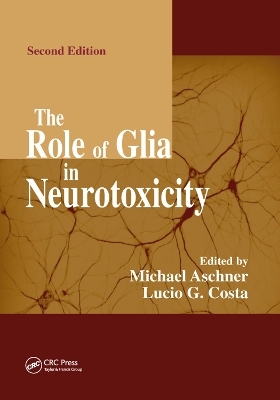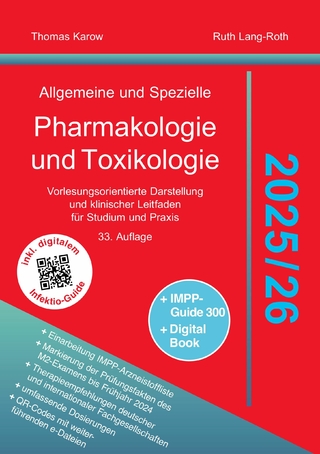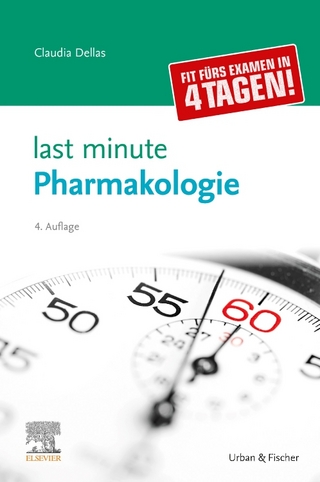
The Role of Glia in Neurotoxicity
CRC Press (Verlag)
978-0-367-39338-0 (ISBN)
Discover what's new in the Second Edition:
Neuronal-glia metabolic interactions
Neuronal-glia interactions (glutamate homeostasis)
Zinc transporters in glia
Energy deprivation/mitochondrial dysfunction - unique astrocyte susceptibilities
Astrocytes and MPTP neurotoxicity
Astroglia and food toxins
Current understanding of the importance of glia has caused a boom in published information. Yet while many of the published textbooks are multifaceted and multidisciplinary, none includes the role of glia in neurotoxicity. Written by leaders in the field of glial research, this text fills this missing gap in the literature. Broader in scope than the first edition, including contributions from internationally known researchers, this is still the only book dedicated to exploring the role of glial cells in mediating neurotoxicology.
Features
Summarizes the latest research in glial cell function gleaned from new techniques in imaging and molecular biology
Contains tables and figures that give you quick and easy access to precise data
Includes a contemporary summary of literature that puts information useful for grant submissions at your fingertips
Michael Aschner, Lucio G. Costa
Neural Precursor Cells and Toxicant Action: Addressing the Analysis of Low-Level Toxicant Exposure. The Role of Microglia in Neurotoxicity. Schwann Cell Neurotoxicity. Function of Astrocyte Cytochrome P450 in Control of Xenobiotic Metabolism. The Reactive Astrocyte. Molecular Mechanisms of Glutamate and Glutamine Transport in Astrocytes. Neuronal-Astrocytic interactions (TCA cycling). Cytokines in Neuronal-Glial Interaction. Signaling Mechanisms Underlying Toxicant-Induced Gliosis. Astrocyte Cellular Swelling: Mechanisms and Relevance to Brain Edema. Astrocyte Metallothioneins and Physiological and Pathological Consequences to Brain Injury. Peripheral Benzodiazepine Receptor Imaging in Glial Cells: Molecular Sensors of Brain Pathology. Astrocyte-Neuronal Interaction and Oxidative Injury: Rose of Glia in Neurotoxicity. Astrocytes in Acute Energy Deprivation Syndromes. The Role of Multiple Drug Resistance in Neuroglial Survival: Lessons from Human Epileptic Brain. Pathogenesis of HIV Associated Dementia and Multiple Sclerosis: Role of Microglia and Astrocytes. Possible Detrimental Role of Astrocytic Activation During the Subacute Phase of Permanent Regional Cerebral Ischemia in the Rat. Role of Microglia and Astrocytes in Alzheimer´s Disease. Developmental Efficts of Xenobiotics on Thyroid Hormone Regulation in the CNS with Emphasis on Glial Function. Astrocytes in Ammonia Neurotoxicity: A Target, A Mediator, and a Shield. Alcohol and Glia in the Developing Brain. Zinc Homeostatic Proteins and Glia. Iron and Glial Toxicity. Astroglia and Methylmercury Neurotoxicity. Manganese. Astroglia and Lead Neurotoxicity. Role of Glia in MPTP Toxicity and Parkinson's Disease.
| Erscheinungsdatum | 30.09.2019 |
|---|---|
| Verlagsort | London |
| Sprache | englisch |
| Maße | 178 x 254 mm |
| Gewicht | 453 g |
| Themenwelt | Medizin / Pharmazie ► Medizinische Fachgebiete ► Neurologie |
| Studium ► 2. Studienabschnitt (Klinik) ► Pharmakologie / Toxikologie | |
| Naturwissenschaften ► Biologie ► Biochemie | |
| ISBN-10 | 0-367-39338-7 / 0367393387 |
| ISBN-13 | 978-0-367-39338-0 / 9780367393380 |
| Zustand | Neuware |
| Haben Sie eine Frage zum Produkt? |
aus dem Bereich


